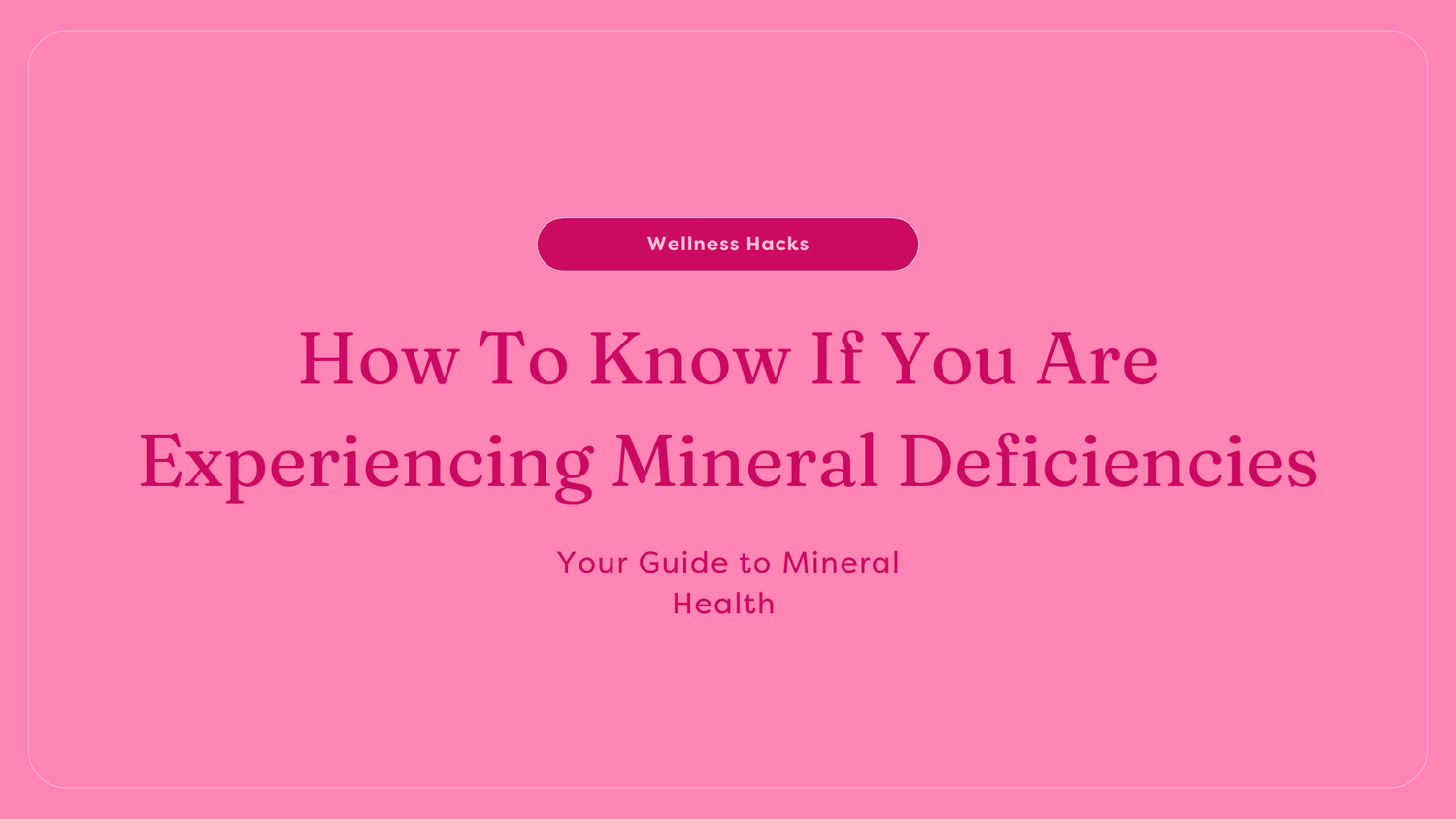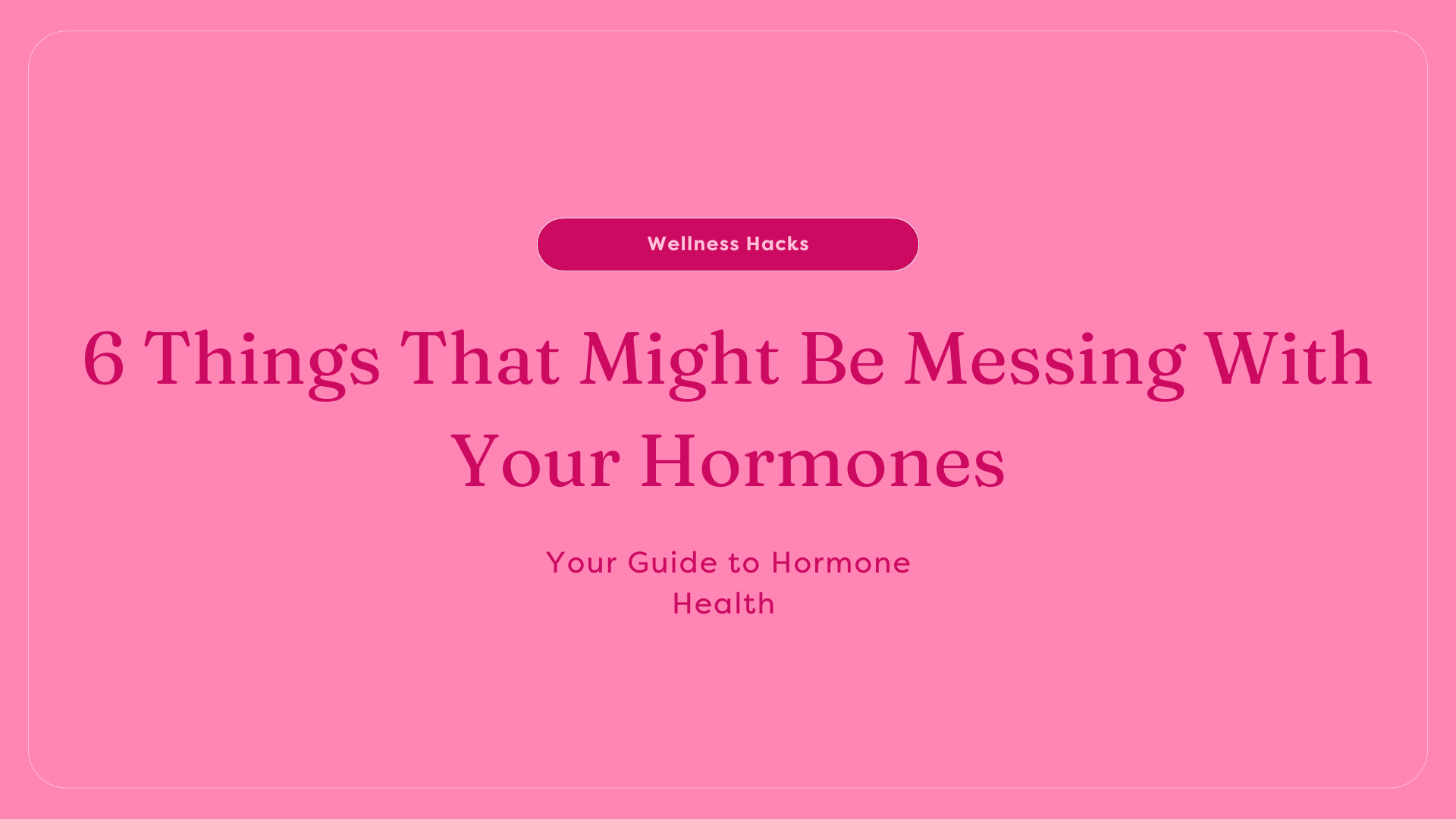Minerals are essential nutrients that play a crucial role in various bodily functions, from bone health to nerve function. When your body lacks these essential minerals, you may experience a range of symptoms and health issues. In this blog post, we'll explore how to recognize signs of mineral deficiencies and offer solutions to address them.
Common Signs of Mineral Deficiencies:
Iron Deficiency:
- Symptoms: Fatigue, weakness, pale skin, shortness of breath, cold hands and feet, brittle nails, and cravings for non-food items (pica).
- Solution: Increase iron-rich foods like lean meats, beans, and dark leafy greens in your diet. Consider an iron supplement if recommended by your healthcare provider.
Calcium Deficiency:
- Symptoms: Muscle cramps, brittle bones, osteoporosis, and a higher risk of fractures.
- Solution: Consume dairy products, leafy greens, almonds, and fortified foods. Discuss calcium supplements with your healthcare provider.
Potassium Deficiency:
- Symptoms: Muscle weakness, fatigue, irregular heartbeat, and muscle cramps.
- Solution: Include potassium-rich foods like bananas, sweet potatoes, and beans in your diet.
Magnesium Deficiency:
- Symptoms: Muscle spasms, anxiety, high blood pressure, and irregular heartbeats.
- Solution: Consume magnesium-rich foods like nuts, seeds, and leafy greens. Magnesium supplement, like The Miracle Worker, can be an option!
Zinc Deficiency:
- Symptoms: Weakened immune system, slow wound healing, hair loss, and loss of taste and smell.
- Solution: Eat foods like lean meats, whole grains, and legumes that are rich in zinc. Zinc supplements may be recommended in specific cases.
Iodine Deficiency:
- Symptoms: Weight gain, fatigue, and an enlarged thyroid (goiter).
- Solution: Use iodized salt and consume iodine-rich foods like seafood and dairy products.
Addressing Mineral Deficiencies:
- Balanced Diet: A well-rounded diet with a variety of foods can help prevent many mineral deficiencies. Ensure that you're eating a wide range of fruits, vegetables, lean proteins, and whole grains.
- Supplements: In some cases, supplements may be necessary, especially when dietary changes aren't enough. Consult your healthcare provider before starting any mineral supplements. Start here: The Miracle Worker Magnesium Powder
- Regular Health Check-ups: Regular check-ups and blood tests can help identify mineral deficiencies early. Book a session with GutPersonal's team of functional medicine registered dietitians!
- Lifestyle Modifications: Reducing stress, quitting smoking, and limiting alcohol intake can help your body absorb and utilize minerals more effectively.
Recognizing the signs of mineral deficiencies is the first step in maintaining your health. A balanced diet, lifestyle adjustments, and supplements, when necessary, can help you address these deficiencies and prevent associated health issues. If you suspect you have a mineral deficiency, consult your healthcare provider for a thorough assessment and personalized recommendations.







Leave a comment
This site is protected by hCaptcha and the hCaptcha Privacy Policy and Terms of Service apply.